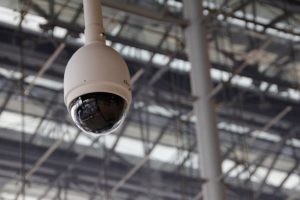
The use of government-imposed corporate monitors, who act as a sort of parole officer for companies that have agreed to compliance reforms after criminal settlements, may soon be on the decline in the United States.
According to new guidance issued by the U.S. Justice Department last week by Assistant Attorney General Brian Benczkowski, the agency will put more consideration into whether or not a monitor is needed to oversee that a company is abiding by promises it makes in settlement agreements.
In a speech at New York University’s School of Law, Benczkowski said the Justice Department would be more discriminating in requiring the use of corporate monitors. Imposing a monitor “will not be necessary in many corporate criminal resolutions,” he said.
“Demonstrated Need”
According to the memo announcing the new guidance, a monitor should be appointed, “only where there is a demonstrated need for, and clear benefit to be derived from, a monitorship relative to the projected costs and burdens. Where a corporation’s compliance program and controls are demonstrated to be effective and appropriately resourced at the time of resolution, a monitor will likely not be necessary.”
The change in guidance could put more pressure on companies to ensure their compliance programs are up to accepted standards and functioning properly, since those aspects are an important factor when the Justice Department is considering imposing a monitor in settlements.
Corporate monitors are routinely assigned to companies that have entered into agreements to settle charges of wrongdoing at the company’s expense. Those agreements could include non-prosecution agreements, deferred prosecution agreements, and plea agreements.
The monitor reviews a company’s operations and compliance program, and makes recommendations for reforms that, if agreed to by the company and prosecutors, management must implement. A monitor can remain in an oversight position at the company for several years.
According to a report by the Wall Street Journal, about one-third of corporate criminal settlements coming through the Justice Department’s Fraud Section during the past five years involved imposing a monitor.
Monitor Selection
The new guidance also sets forth the process for selecting monitors that provides companies with slightly more say in who the monitor will be. As in past guidance, the company is required to submit a written proposal identifying a pool of three qualified monitor candidates, with proof of their qualifications and credentials. In the new guidance, the company can now identify its first choice to serve as monitor and a description of why the selected candidate is being recommended and a description of the other candidates put forward for consideration by the company.
Focus on Compliance
Many corporate governance experts have noted that there is not a lot of substantial change in the new guidance on the use of monitors from the last major guidance issued in the 2009 Breuer Memorandum.
Apart from detailing the new guidance on corporate monitors, Benczkowski emphasized the importance of corporate compliance programs and the scrutiny those programs will receive when companies are charged with wrongdoing. “Every case will at some stage require a deep look into the sufficiency and proper functioning of the subject company’s compliance program. As companies continue to grow in size, scope and complexity, and as international business becomes the norm rather than the exception, compliance is of ever greater importance in ensuring that companies operate efficiently and within the bounds of the law.” ![]()
Did you enjoy this article? Consider making a small donation to support independent business journalism at Internal Audit 360°. Click Here! And much thanks to all of those who have already donated. Our success depends on it!

